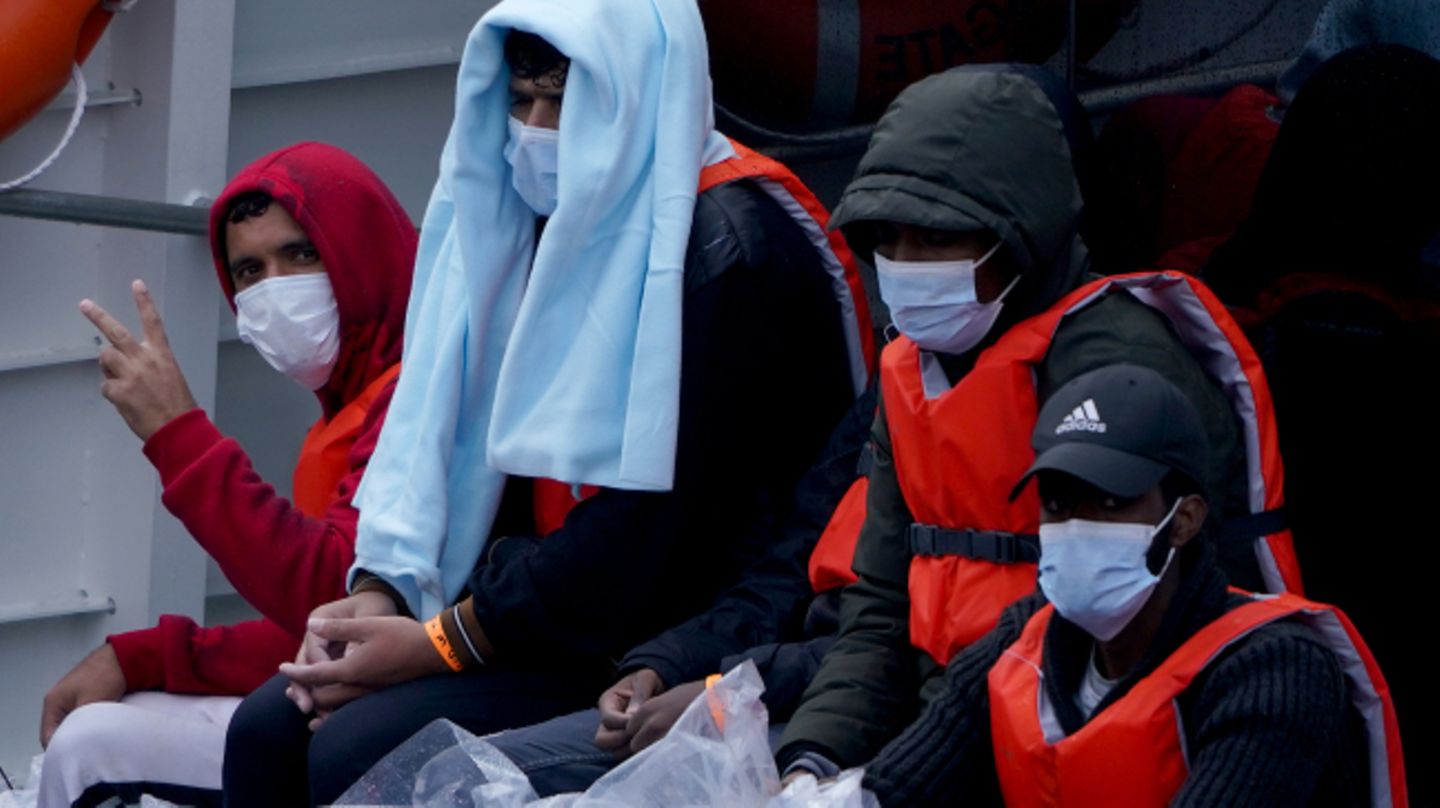Never again scenes like the Second World War: The Geneva Refugee Convention was created 70 years ago to protect refugees after 1945. Today she is under attack.
It is considered an achievement of humanity and is the cornerstone of international refugee law: the Geneva Refugee Convention. It gives the persecuted the right to asylum and forbids sending people back where they are threatened with persecution. 70 years after it was passed on July 28, 1951, 34 million people around the world are on the run because of conflict and persecution in their home country. The number increases year after year. The UN Refugee Agency (UNHCR) is desperately looking for admission places for almost 1.5 million people. Migration and asylum divide societies. Is the convention still up to date?
“The convention is as relevant today as it was in 1951,” says Filippo Grandi, UN High Commissioner for Refugees, the German Press Agency. “It remains a life-saving protective instrument.” The convention has helped protect more than 50 million people, according to the UNHCR.
Expert: “You hit the sack even though the donkey is meant”
Developing countries have taken in most of the refugees, but the industrialized countries groan the loudest. People are no longer welcomed with open arms, but are perceived as a threat, as Grandi says. In addition, people smugglers abuse the convention by fooling people into having a chance of recognition and smuggling them across borders for a lot of money.
Therefore it is nonsense to condemn the convention, says Alberto Achermann, professor of migration law at the University of Bern. “You hit the sack even though the donkey is meant. You can’t abolish a system just because it is being abused by some.” He adds, “What if we didn’t have the convention? What should happen to a person who says they will be tortured when they return home? There is no getting around looking into the case when you are does not want to be barbaric. “
The Convention does not protect a person who “out of well-founded fear of persecution because of their race, religion, nationality, membership of a certain social group or because of their political convictions is outside the country of their nationality, and does not protect this country can avail himself or does not want to avail himself because of these fears “.
UN Commissioner: The asylum system must be reformed
Victims of natural disasters or migrants who are looking for a life with dignity and job opportunities are not protected. Hundreds of thousands try their luck anyway. Applications pile up at asylum authorities. In 2020, 26 percent of around 145,000 applicants in Germany were recognized as refugees, 17 percent were granted other protection. The others have to leave the country. Your applications have been withdrawn, rejected or referred to other countries.
Grandi admits that the asylum system in Europe is reaching its limits. But that is not due to the convention, rather the system must be reformed. Asylum applications would have to be checked more quickly, within weeks, and those who were rejected would have to be returned more quickly. “If the system were more efficient, there would be less abuse.”
The convention is nevertheless called into question by rights. The former Austrian Interior Minister Herbert Kickl from the FPÖ said when he called for tightening of the asylum law: “We can’t mess around with things from the 1950s.”
Legal expert on convention: “Need more effective protection”
Renegotiating the convention is not without its problems, says Anuscheh Farahat, professor of public law, migration law and human rights at the University of Erlangen-Nuremberg. “We would certainly not get the same level of protection if we renegotiate it – the calculation of many such proposals would be to find a new regulation that would put the EU’s practice of keeping refugees as far away from the borders as possible into law.”
In doing so, the EU is violating international law, says Petra Bendel, chairwoman of the Advisory Council on Integration and Migration. She points to Greece, where refugee boats are being pushed back, and Libya, where the coast guard intercepts refugees and brings them back ashore.
Farahat says there is no allocation key in the convention so that the crisis-prone states do not have to take in most of the refugees or – as in the EU – the countries at the external borders. She fears that the European states could try in the next few years to relocate refugee protection even more to third countries, for example through reception centers far away from their own borders. Her conclusion: “It’s good that we have the convention, but it is not enough on its own. We still need more effective protection so that people do not have to live in inhumane situations.”
David William is a talented author who has made a name for himself in the world of writing. He is a professional author who writes on a wide range of topics, from general interest to opinion news. David is currently working as a writer at 24 hours worlds where he brings his unique perspective and in-depth research to his articles, making them both informative and engaging.




